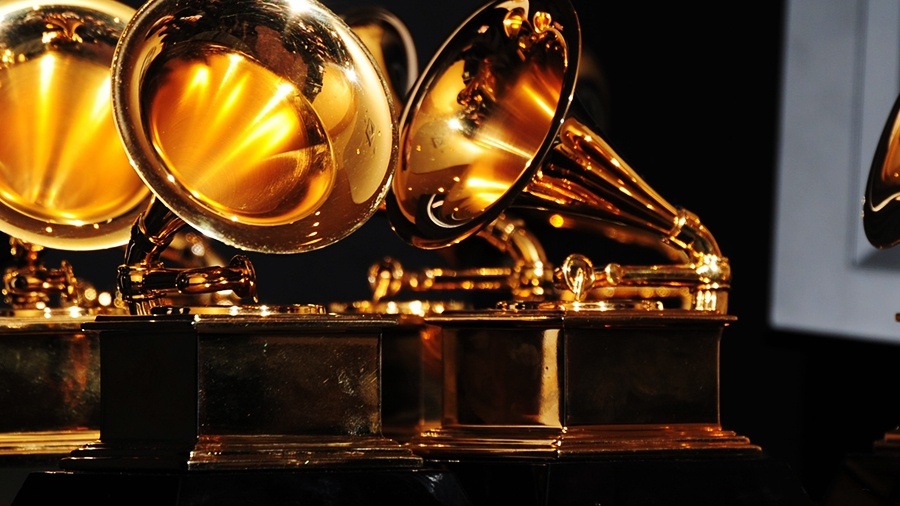The 63rd Annual Grammy Awards ceremony took place in Los Angeles Sunday evening. Here are excerpts from the winning albums in the classical categories:
Best Orchestral Performance
“Ives: Complete Symphonies” — Gustavo Dudamel, conductor (Los Angeles Philharmonic)
This album features the four numbered symphonies of Charles Ives. The “New England Holidays” is not included. We sense an exciting artistic progression from the relatively conservative Symphony No. 1, completed in 1902 in response to a graduation assignment from Ives’ teacher Horatio Parker, to the folksong-infused Symphony No. 2, to the wildly adventurous later symphonies.
Here is the final movement of Symphony No. 2:
Best Opera Recording
Gershwin: Porgy And Bess” — David Robertson, conductor; Angel Blue & Eric Owens; David Frost, producer (The Metropolitan Opera Orchestra; The Metropolitan Opera Chorus)
This album was recorded live during two Metropolitan Opera performances in the fall of 2019. Here is a telecast excerpt of the famous Act 1 duet, featuring Eric Owens and Angel Blue:
Best Choral Performance
Danielpour: The Passion Of Yeshua” — JoAnn Falletta, conductor; James K. Bass & Adam Luebke, chorus masters (James K. Bass, J’Nai Bridges, Timothy Fallon, Kenneth Overton, Hila Plitmann & Matthew Worth; Buffalo Philharmonic Orchestra; Buffalo Philharmonic Chorus & UCLA Chamber Singers)
Conductor JoAnn Falletta describes Richard Danielpour’s dramatic oratorio, The Passion of Yeshua, as “an intensely personal telling of the final hours of Christ on earth” which “incorporates the Jewish faith and the cadence of the Hebrew language into music of extraordinary beauty.”
Here is the Prologue which opens the work:
Best Chamber Music/Small Ensemble Performance
“Contemporary Voices” — Pacifica Quartet
This album features “works by three Pulitzer Prize-winning contemporary composers: Shulamit Ran, Jennifer Higdon, and Ellen Taaffe Zwilich.” This is the world premiere recording of Ran’s Glitter, Doom, Shards, Memory — String Quartet No. 3, an elegy to Felix Nussbaum, a painter who fell victim to Auschwitz in 1944. This work, along with Higdon’s Voices, was written for the Pacifica Quartet. Zwilich’s Quintet for Alto Saxophone and String Quartet rounds out the album. In this final work, the Pacifica Quartet is joined by saxophonist, Otis Murphy.
Jennifer Higdon’s Voices is based on three images, the frenetic Blitz, the calming Soft Enlacing and the transfiguring Grace. The composer describes the piece as a progression “from manic and frenzied to calm and quiet, from specific to vague, and from dark to light.” Here is Grace:
Best Classical Instrumental Solo
Theofanidis: Concerto for Viola and Chamber Orchestra” — Richard O’Neill; David Alan Miller, conductor (Albany Symphony)
Under its music director, David Alan Miller, the Albany Symphony has long been a champion of contemporary music and neglected past works by American composers. (I performed with this ensemble on many occasions during my years as a graduate student at the Eastman School of Music). On this recording, the Albany Symphony is joined by violist Richard O’Neill, a newly appointed member of the Takács Quartet.
Completed in 2002, the Concerto for Viola and Chamber Orchestra is set in four movements which were inspired by lines from Native American poetry. According to the composer, the third movement, The Center of the Sky, “counterbalances two affects- sadness and beauty. It is a kind of aria for viola and orchestra, and the materials are long melodies that spin out in time against often stark textures.”
Best Classical Solo Vocal Album
Smyth: The Prison” — Sarah Brailey & Dashon Burton; James Blachly, conductor (Experiential Chorus; Experiential Orchestra)
Dame Ethel Smyth (1858-1944) was an English composer and writer and an active member of the women’s suffrage movement. Composed in 1930, The Prison was Smyth’s last large-scale work. Scored for two soloists, chorus, and orchestra, it fits under the category of an oratorio or cantata.
Best Classical Compendium
Thomas, M.T.: From The Diary Of Anne Frank & Meditations On Rilke” — Isabel Leonard; Michael Tilson Thomas, conductor; Jack Vad, producer
The San Francisco Symphony marks the 25th and final year of Michael Tilson Thomas’ leadership as music director with two of his compositions. From the Diary of Anne Frank accompanies the timeless words of the young author. Meditations on Rilke “takes listeners on an emotional and evocative journey befitting the lyrical sweep of Rainer Maria Rilke’s poems.”
Best Contemporary Classical Composition
Rouse: Symphony No. 5” — Giancarlo Guerrero & Nashville Symphony
Symphony No. 5, by the late American composer, Christopher Rouse, was completed in 2015. It unfolds in a single, continuous movement in which the traditional outlines of the four movement form are evident. The work is filled with references to Beethoven’s Fifth Symphony, music which inspired the six-year-old Rouse to become a composer.


What a feast of music! On a personal note, I feel a connection with Charles Ives, since I also found my father very difficult to get on with – though I didn’t suffer anything like Ives did! And you will know the story about Sir Thomas Beecham visiting Dame Ethel Smyth in prison, where “she neither reflected nor repented,” conducting her own song from a window… with a toothbrush.
Thank-you for this contribution.